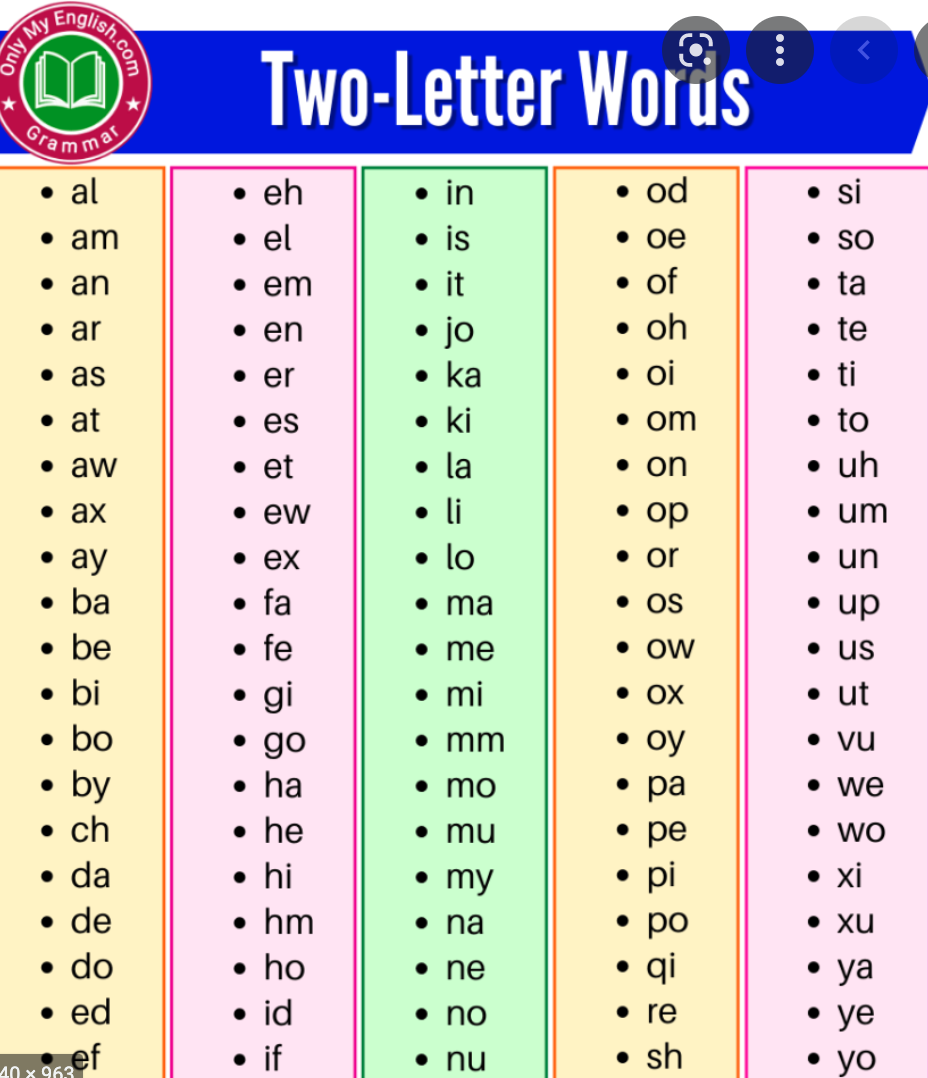
As far as I can figure out, there are only five two-letter verbs in English. If you want to take a moment to try to come up with them, don't scroll down yet. If solving such word puzzles is not how you roll, scroll away.
Here are the ones I have on my list:
- is
- am
- be
- go
- do
Did you come up with others? If so, this whole post might not make sense. (Honestly, it might not make sense anyway.) So I was thinking about why we have/need very short words in our language. We use them for our most fundamental, common, and necessary concepts.
So I started thinking about what each of those five verbs means. Three of them offer distinct forms of the linking verb to-be. The other two provide both the command and the infinitive form of the most basic action. As a person who's always trying to find ways to get more and more tasks accomplished, I wonder if I should heed the ratio to spend fifty percent more time being than doing. I've never been a fan of mindfulness practices (maybe because of how they were introduced to me), but I feel drawn to the idea that our language reflects our values. If that's true, then the ratio of being to doing two-letter verbs might be guiding us to allow ourselves to be ourselves without the pressures to exert.
What do you think? Please share your thoughts in the comments. Or, if you agree with my idea (if you understood my point), you might just sit with it rather than feeling the need to act. Hmmm.
ok to be or do
xx
I see what you did here and love it but can’t figure out how to reply in kind. Kudos.
D’oh! I assumed you meant two-letter infinitives and was stuck at “don’t scroll down yet” for quite a while trying to find two more. I don’t draw a lesson from this one. English doesn’t have that many two-letter words at all, and verbs need room to conjugate (be and go are both irregular).
But I do think sometimes it’s okay to get less done. I read somewhere recently (maybe you linked to it) an article about how counter-productive to-do lists are because they encourage you to cross off items instead of focusing on what’s important, often incentivizing users to spend more time on easier tasks regardless of priority. I know that’s one of my weaknesses. Maybe in your case it would help to add “do nothing for five minutes” or “watch a TV show without checking email” to your to-do list to remind you that just being is sometimes okay (even beneficial) too!
I didn’t link to that — in fact, I’m sure I’ve talked about how much I love to-do lists. I’d argue that I use to-do lists to focus on what’s important. I like breaking up what matters into chunks of effort I can quantify, accomplish, and cross off rather than thinking about them as huge and out of my control. I get the point you’re making though, that the satisfaction of writing a check mark shouldn’t be the goal or we’ll focus on the wrong tasks/aspects of life. I have heard about the advantages of scheduling downtime. I like the idea of writing “be” on my to-do list and seeing what I’d make of it. As always, you’ve provided food for thought. If you ever want to write another whole post for thought…
Oh I know how much you like to do lists. I was thinking you posted it to argue against it. I don’t know who it was then. The only other person I can think of who would blog about that actually owns the to-do list software I used to use, so maybe it’s not him …
hehehe
Ax is also a verb. Clearly, English speakers value axes and axing…in addition to going, being and doing. Also, your mindfulness comment… lmao.
I can’t believe I axed “ax” from my list. That’s clearly a strong form of doing but also of cutting out what we don’t need. Interesting.
Yes, if you know, you know.
DayTimes form provides per day a page to list “To Be Done Today” and a narrow column to √ when done, and also a column to set priority. With lots that one wants to do, some of us don’t remember them all, much less in time for things others schedule. Or get so in the flow that time and other tasks aren’t in consciousness (often seen as a good state, except when forgetting the 3 minute egg or the hungry baby). Yes there is some satisfaction in crossing, or √ing) an item as done, but usually less than the regret at still not attacking that higher priority, still hanging around, item. Likely other issues when the to do items are assigned rather than self-adopted.
I end up drawing my checklists for myself, but I can see how having a form would appeal. As for the higher priorities, I like the idea of turning them into smaller tasks I can check off — avoids regret and gets to check off items.
Important Unimportant
Easy 1 2 or 3
Hard 2 or 3 N4N 4
Try to picture this in a grid of two columns and two rows. Do the things that are important and easy first. Do the things that are unimportant and hard last. Choose between hard and unimportant and easy and important for your middle choices and you’ll find yourself to be very efficient and happy.
Most importantly, however, is to remember that- If it is to be, it is up to me.
Oh, that last part is good — all two letter words, and so true/important.
I like the grid, too — a Cartesian plane of importance, no? Why would we ever do anything in the third quadrant — not easy or important?